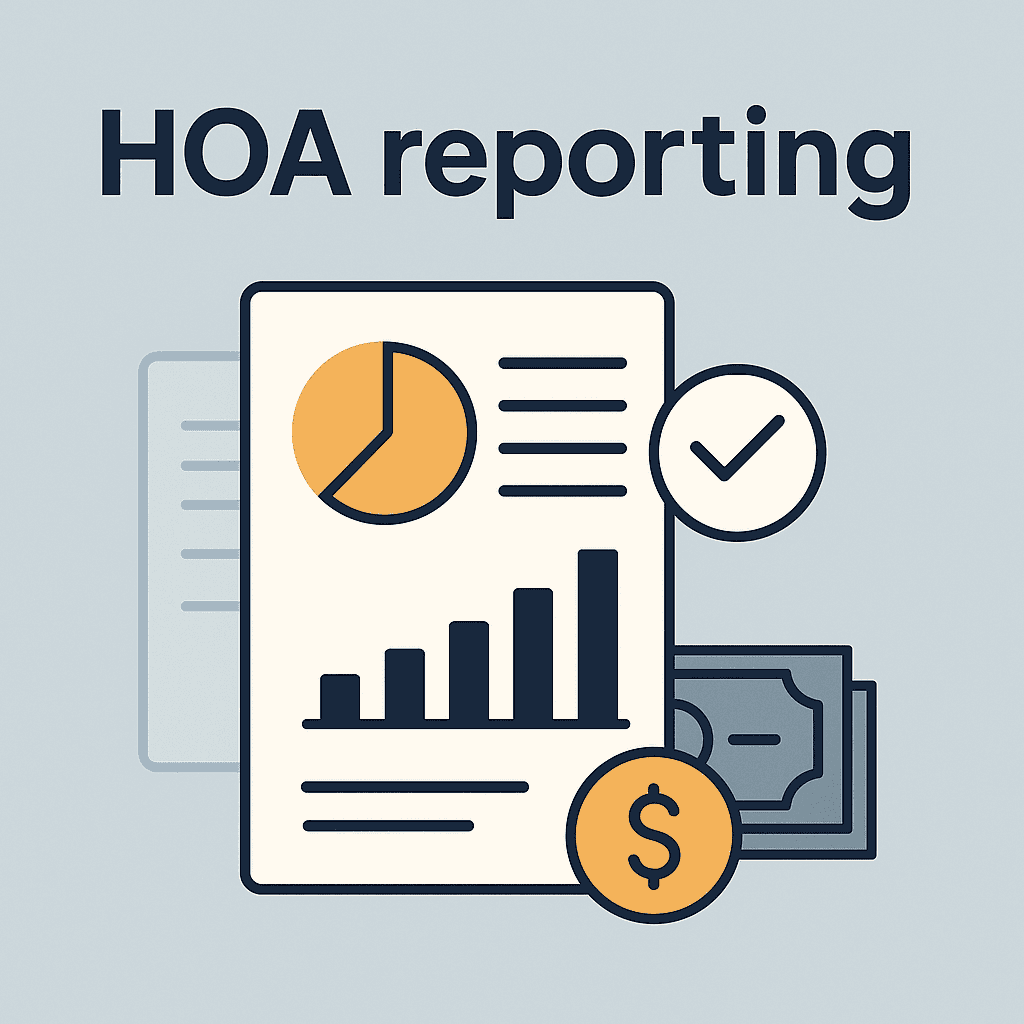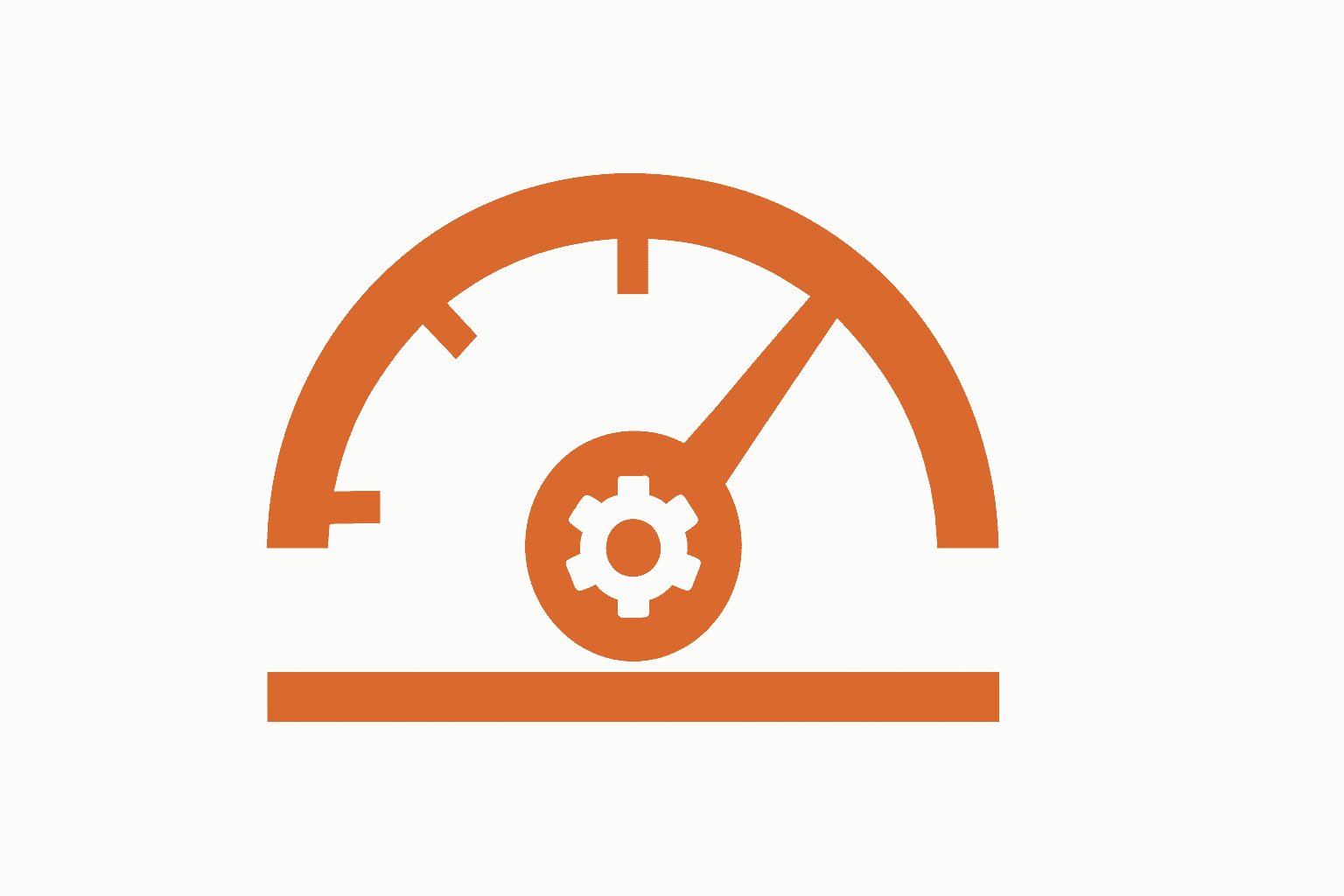HOA reporting – what it is and why it matters
HOA reporting isn’t just about financial statements. From monthly accounting and annual transparency reports to new BOI filings, reporting keeps your community compliant and informed. This guide explains the main types, deadlines, and best practices so your HOA can stay organized and build trust.

When you hear “HOA reporting,” you might think of just financial statements. But in reality, HOA reporting covers a wider range of documents, data, and updates that keep your community compliant, transparent, and running smoothly.
HOA reporting is simply the process of preparing, sharing, and sometimes filing specific information about your association’s operations, finances, and governance. It can include everything from internal updates for homeowners to mandatory filings with government agencies.
But why does it matter? Clear reporting helps board members make better decisions, keeps residents informed, and ensures the HOA meets legal requirements.
That’s why.
The main types of HOA reporting
While the exact requirements vary depending on state laws and your governing documents, most HOAs deal with a mix of financial, compliance, and operational reports.
We’ll start from the top.
1. Financial and accounting reports
These track the money coming in and going out, and they’re essential for good governance. Examples include:
- Accounts payable report – lists unpaid bills and when they’re due.
- Accounts receivable report – tracks dues, fees, and other payments owed to the HOA.
- Account delinquency report – shows overdue accounts, helping the board address non-payment.
- Budget vs. actual report – compares planned spending with actual expenses.
- Bank reconciliation report – ensures bank balances match HOA records.
These reports aren’t just paperwork. Nope, they help boards avoid financial surprises and maintain trust with homeowners.
2. Beneficial ownership information (BOI) reporting
As of January 1, 2024, many U.S. HOAs are required to submit Beneficial Ownership Information to FinCEN under the Corporate Transparency Act.
- Who counts as a beneficial owner? Typically board members with substantial control, and in rare cases, individuals owning 25% or more of the homes.
- Deadlines:
- HOAs formed before Jan 1, 2024 → file by Jan 1, 2025.
- HOAs formed in 2024 → file within 90 days.
- From 2025 onward → file within 30 days of formation.
- Updates must be filed within 30 days of any change (like new board members, updated addresses, or ID changes). Even one replacement on the board can trigger a new filing.
Failure to comply can mean fines of up to $500 per day, penalties of up to $10,000, and even potential jail time.
3. Annual financial transparency reports
These give all homeowners a clear view of how funds are managed. They often include:
- Revenue and expense statements
- Capital improvement spending
- Reserve fund balances
- Insurance coverage details
- Pending legal matters
Publishing or sharing financial statements before the annual meeting allows homeowners to ask informed questions and strengthens trust between residents and the board.
4. Operational and community reports
Not all HOA reporting is financial. Boards may also share:
- Project status updates (repairs, landscaping, amenities)
- Compliance reports (rule enforcement, architectural reviews)
- Meeting minutes for transparency
These keep homeowners in the loop and encourage engagement. Having a great software solution for this kind of reporting can make everything easier.
Common mistakes in HOA reporting
Even well-intentioned boards can run into trouble with reporting. Some of the most common errors include:
- Missing deadlines: especially with BOI filings, where the window for updates is just 30 days.
- Inaccurate data: forgetting to update ownership or board member details, which can cause compliance issues.
- Incomplete financials: leaving out reserve fund data, past-due accounts, or vendor obligations makes reports less useful.
- Lack of homeowner access; in many states, residents have a legal right to review certain reports. (Perfect place to pitch a safe, secure and accessible document storage).
Avoiding these mistakes starts with a clear reporting schedule and internal checks before anything is filed or shared.
Best practices for smooth HOA reporting
- Know your obligations – Review state laws, your governing documents, and federal rules like the Corporate Transparency Act.
- Create a reporting calendar – Include recurring reports, deadlines, and responsible parties so nothing gets overlooked.
- Be proactive with updates – Don’t wait until the end of the year; share key information regularly to build trust.
- Use reliable tools – HOA software can centralize reports, track approvals, and store historical data for easy reference.
- Document everything – Keep backup records of every report filed or shared in case of disputes or audits.
Why HOA reporting matters
Good reporting isn’t about ticking boxes. Instead it’s about creating a culture of transparency and accountability. It helps:
- Prevent misunderstandings between the board and residents
- Spot financial or operational issues early
- Comply with laws and avoid costly penalties
- Build trust so homeowners feel confident in the board’s decisions
HOA reporting requirements – a quick recap
- Financial reports track the HOA’s economic health and help guide decision-making.
- BOI reports are a new federal compliance step for many HOAs, with strict deadlines.
- Annual transparency reports give homeowners insight into how funds are managed.
- Operational reports keep everyone informed on projects, rules, and governance.
- By staying organized and proactive, your HOA can meet reporting requirements with less stress and more confidence.
FAQ
- What happens if my HOA doesn’t file a required BOI report? You could face fines of up to $500 per day, penalties of up to $10,000, and possible criminal charges.
- Are all HOAs required to file BOI reports? No. Some small HOAs (under 20 units and under $5,000 annual revenue) are exempt.
- How often should we produce financial reports? Most boards review them monthly and share summaries quarterly or annually.
- Can reporting be done entirely online? Yes. Many HOAs now store and share reports securely online for easier access and better record keeping.






